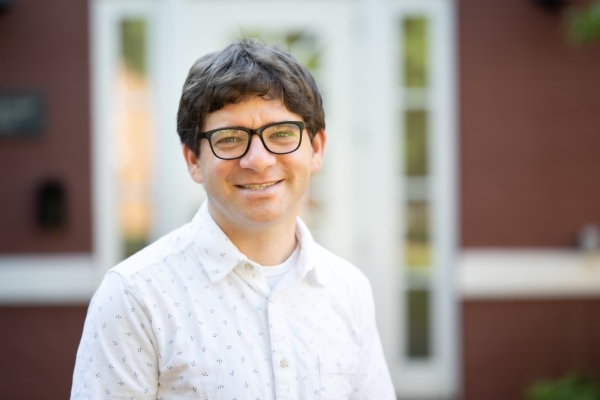W&L’s Schatten Featured on The Big Story Podcast The professor of business administration shared his thoughts on ChatGPT and what AI means for higher education.
Washington and Lee University Professor of Business Administration Jeff Schatten was recently a guest on The Big Story podcast hosted by Jordan Heath-Rawlings. The Big Story is the top daily news podcast out of Canada and Schatten was featured in the Feb. 13 episode to discuss ChatGPT and what artificial intelligence (AI) means for higher education.
Schatten has been following AI for years and regularly incorporates it into the classes he teaches at W&L. He also recently delivered a presentation for W&L faculty and staff on the potential impacts of ChatGPT on higher education.
ChatGPT is the AI tool receiving the most attention because it is directly accessible to consumers, and Schatten believes it has the potential to disrupt higher education both through the threats it poses and the opportunities it can create.
“ChatGPT is the first product the public can really sink their teeth into, and you see immediately how powerful it is,” said Schatten, citing the technology’s creative capabilities and ability to write an essay that easily competes with a college student’s work.
Compared to advances in technology, the building blocks of higher education – reading, writing, discussion and group projects – have remained relatively unchanged. But Schatten sees AI as the single technology that changes the world and hopes ChatGPT will usher higher education into the 21st century.
“We’re watching tectonic plates shift under our feet, which is amazing and fun and interesting, but we are going to have to re-tool how we teach undergraduate and graduate students,” Schatten said. “Writing won’t go away, but the 21st-century higher education model is, by necessity, going to need to be more diverse in terms of its pedagogical approaches.”
Schatten doesn’t think ChatGPT should be banned in the classroom, but he doesn’t think it should be embraced either, especially if we want students to think critically and independently.
“We still have to ask what happens to our students and what skills we can give them to help them develop critical thinking, even though there’s this tool that can do a lot of it for them,” he said. Having used ChatGPT in his classes, Schatten visualizes a shift in pedagogy where writing assignments are more development-oriented and require students to apply what they’ve been learning to themselves and their own academic growth; and to incorporate more simulations, presentations and experiential learning.
He remains optimistic that ChatGPT can be used as a tool for creativity and brainstorming, and will not change W&L’s mission to produce critical thinkers and engaged citizens of the world, but simply change the ways in which the university pursues that mission.
Schatten joined W&L’s faculty in 2016 and his experience as a teacher and researcher lies at the intersection of business and the liberal arts. He received his bachelor’s degree in philosophy from the University of Maryland and his doctorate in managerial sciences from Georgia State University. He has served as a pro-bono strategy consultant for several nonprofit organizations and hosts the highly-rated management podcast, “Demystifying Organizations.”
If you know a W&L faculty member who has done great, accolade-worthy things, tell us about them! Nominate them for an accolade.
 Jeff Schatten
Jeff Schatten
You must be logged in to post a comment.